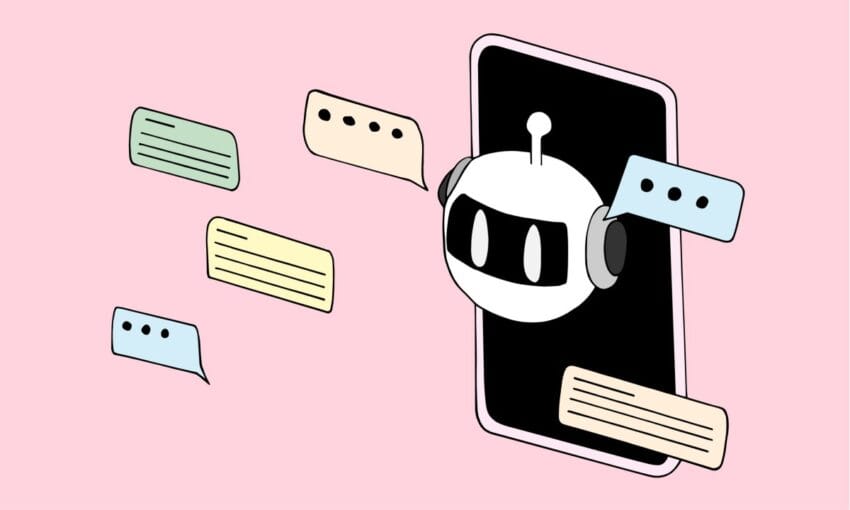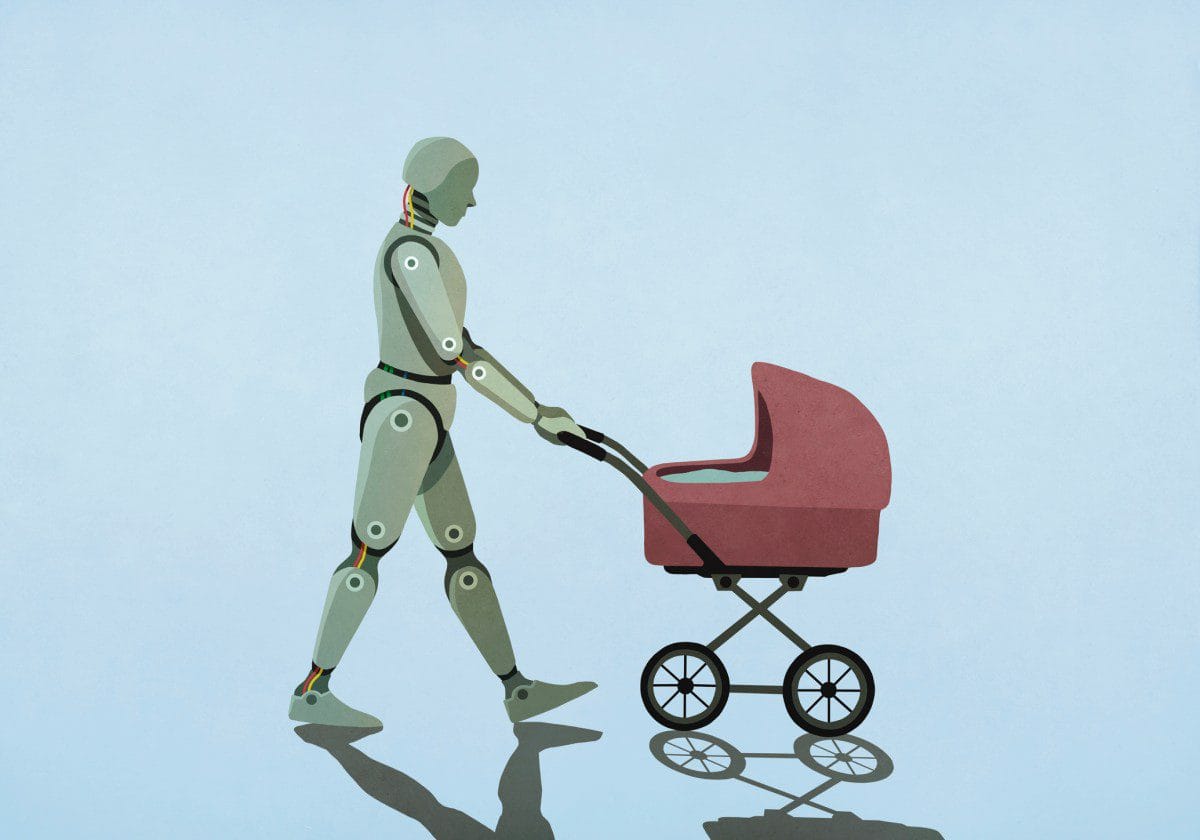
users turn to chatbots for spiritual guidance In an era where technology increasingly permeates every aspect of life, users are turning to chatbots for spiritual guidance, with some platforms even claiming to facilitate conversations with God.
users turn to chatbots for spiritual guidance
The Rise of Spiritual Chatbots
The emergence of chatbots as a source of spiritual guidance marks a significant shift in how individuals seek comfort and advice. Traditionally, spiritual guidance was sought through religious leaders, texts, or personal reflection. However, the digital age has introduced a new player in this arena: artificial intelligence. Chatbots are now being designed to offer spiritual support, advice, and even a semblance of divine interaction.
Understanding the Appeal
The appeal of using chatbots for spiritual guidance can be attributed to several factors:
- Anonymity: Many individuals feel more comfortable discussing personal issues with a chatbot than with a human. The anonymity provided by chatbots allows users to explore their spiritual concerns without fear of judgment.
- Accessibility: Chatbots are available 24/7, making spiritual guidance accessible at any time. This is particularly beneficial for those who may not have access to traditional religious services or counseling.
- Personalization: Advanced chatbots can provide tailored responses based on user input, creating a more personalized experience that resonates with individual needs.
- Cost-Effectiveness: Many chatbot services are free or low-cost, making them an attractive option for individuals seeking guidance without the financial burden of traditional counseling.
Examples of Spiritual Chatbots
Several platforms have emerged that specifically cater to users seeking spiritual guidance through chatbots. These platforms vary in their approach and the type of guidance they offer.
Chatbot Platforms Claiming Divine Interaction
One notable example is a website that claims to allow users to chat with God. This platform presents itself as a digital space where individuals can pose questions and receive answers that they believe to be divinely inspired. The interface is designed to mimic a conversation, providing users with a sense of connection to a higher power.
While the concept may seem unconventional, it taps into a deep-rooted human desire for connection and understanding. Users report feeling comforted by the experience, often describing it as a form of prayer or meditation. The chatbot’s responses are crafted to reflect themes of love, forgiveness, and guidance, resonating with the spiritual needs of users.
Other Notable Chatbots
Beyond the platform that claims to facilitate conversations with God, there are other chatbots designed to provide spiritual support:
- Replika: Initially designed as a personal AI companion, Replika has evolved to include features that allow users to explore their spirituality. Users can engage in discussions about their beliefs, values, and life challenges, receiving supportive feedback from the AI.
- Woebot: While primarily a mental health chatbot, Woebot incorporates elements of mindfulness and self-reflection, encouraging users to explore their spiritual well-being alongside their mental health.
- Faithbot: This chatbot is specifically designed for users seeking religious guidance. It offers scripture references, prayers, and advice based on various religious traditions, catering to a diverse audience.
The Technology Behind Spiritual Chatbots
The technology that powers these spiritual chatbots is rooted in artificial intelligence and natural language processing. These advancements allow chatbots to understand user input and respond in a way that feels conversational and empathetic.
Natural Language Processing
Natural Language Processing (NLP) is a critical component of chatbot technology. It enables chatbots to interpret and generate human language, allowing for more meaningful interactions. Through machine learning algorithms, chatbots can analyze user input, recognize patterns, and provide contextually relevant responses.
For example, if a user expresses feelings of loneliness, the chatbot can recognize this emotional state and respond with comforting messages or suggestions for self-care. This ability to understand and respond to emotional cues is what sets spiritual chatbots apart from traditional search engines or FAQ bots.
Machine Learning and Personalization
Machine learning algorithms allow spiritual chatbots to learn from user interactions over time. This means that the more a user engages with the chatbot, the more personalized the experience becomes. The chatbot can remember past conversations, preferences, and specific concerns, tailoring its responses to better suit the individual user.
This level of personalization enhances the user’s experience, making it feel as though they are engaging in a meaningful dialogue rather than simply receiving generic advice.
Implications of Chatbots in Spiritual Guidance
The rise of chatbots in the realm of spiritual guidance raises several important implications for both users and society as a whole.
Changing Dynamics of Spirituality
The integration of technology into spiritual practices signifies a shift in how individuals engage with their beliefs. For many, chatbots provide a modern approach to spirituality that aligns with their digital lifestyles. This change may lead to a broader acceptance of technology as a legitimate source of spiritual support.
However, it also raises questions about the authenticity of spiritual experiences facilitated by AI. Can a chatbot truly provide the same level of comfort and guidance as a human spiritual leader? This question remains a topic of debate among theologians, ethicists, and technology experts.
Potential Risks and Concerns
While the benefits of spiritual chatbots are evident, there are also potential risks and concerns that warrant consideration:
- Emotional Vulnerability: Users seeking spiritual guidance may be in vulnerable emotional states. Relying solely on a chatbot for support could lead to inadequate responses to complex emotional issues.
- Misinterpretation of Guidance: The responses generated by chatbots may not always align with traditional teachings or beliefs. Users may misinterpret advice as authoritative, leading to confusion or misguided actions.
- Data Privacy: Engaging with chatbots often involves sharing personal information. Users must be aware of data privacy concerns and the potential for their information to be misused.
Stakeholder Reactions
The emergence of spiritual chatbots has elicited a range of reactions from various stakeholders, including religious leaders, mental health professionals, and technology experts.
Religious Leaders
Many religious leaders express skepticism about the effectiveness of chatbots in providing spiritual guidance. They argue that human connection is essential in spiritual matters and that AI cannot replicate the depth of understanding and empathy that a human spiritual leader can offer. Some see the rise of chatbots as a challenge to traditional religious practices, while others view it as an opportunity to engage with a tech-savvy audience.
Mental Health Professionals
Mental health professionals have mixed feelings about the use of chatbots for spiritual guidance. While they acknowledge the potential benefits of providing support to individuals who may not seek traditional therapy, they caution against relying solely on AI for emotional support. They emphasize the importance of human interaction in addressing complex emotional and spiritual issues.
Technology Experts
Technology experts recognize the innovative nature of spiritual chatbots but urge caution regarding their limitations. They highlight the need for ongoing research and development to ensure that these tools are effective and safe for users. Ethical considerations surrounding AI in spiritual contexts are also a point of discussion, as developers grapple with the implications of creating technology that engages with deeply personal beliefs.
Conclusion
The rise of chatbots as a source of spiritual guidance reflects a broader trend of technology intersecting with personal beliefs and practices. While these digital companions offer unique advantages, such as accessibility and anonymity, they also raise important questions about the nature of spirituality and the role of technology in our lives. As users increasingly turn to chatbots for comfort and advice, it is crucial to navigate this evolving landscape with care, ensuring that technology serves as a supportive tool rather than a replacement for genuine human connection.
Source: Original report
Was this helpful?
Last Modified: September 15, 2025 at 4:37 am
6 views















